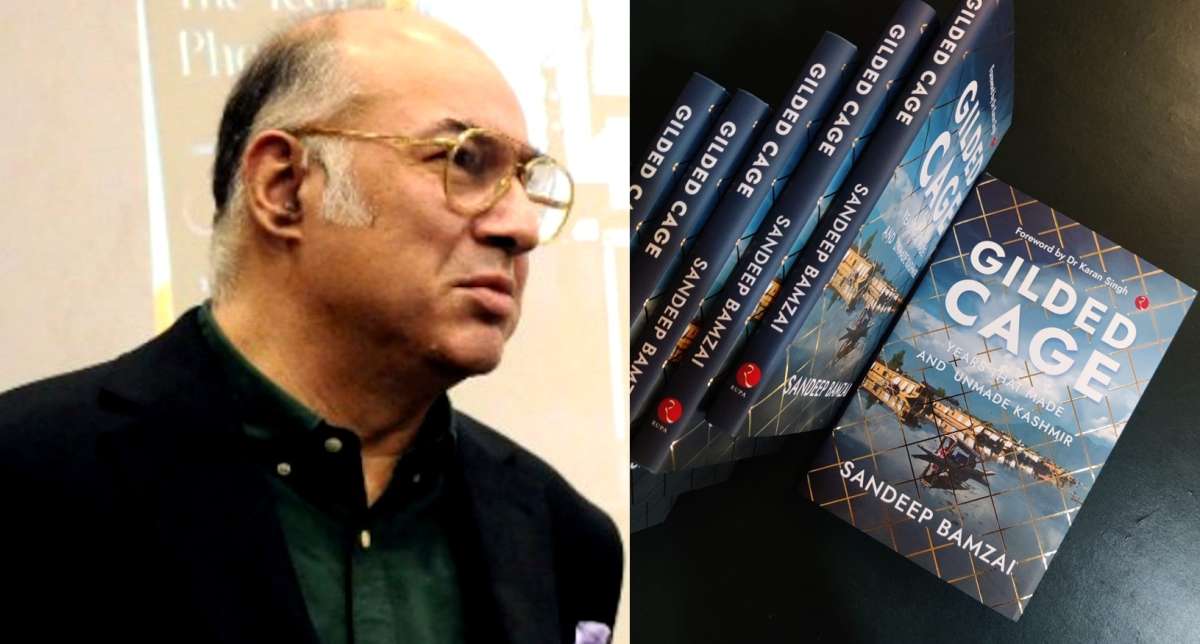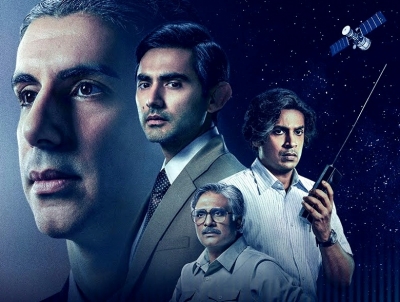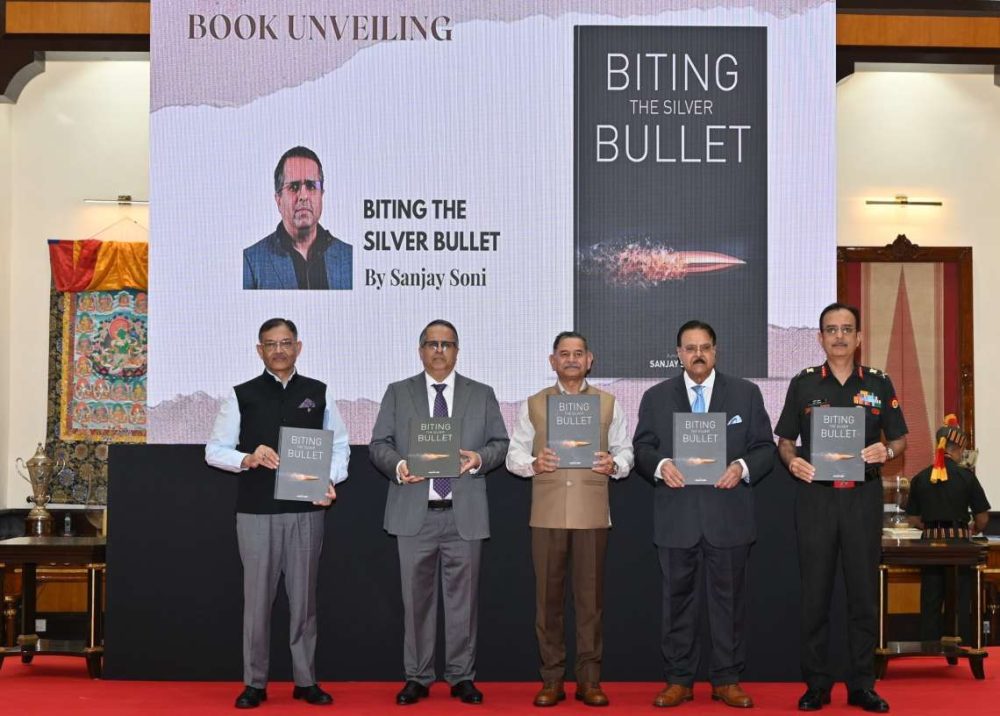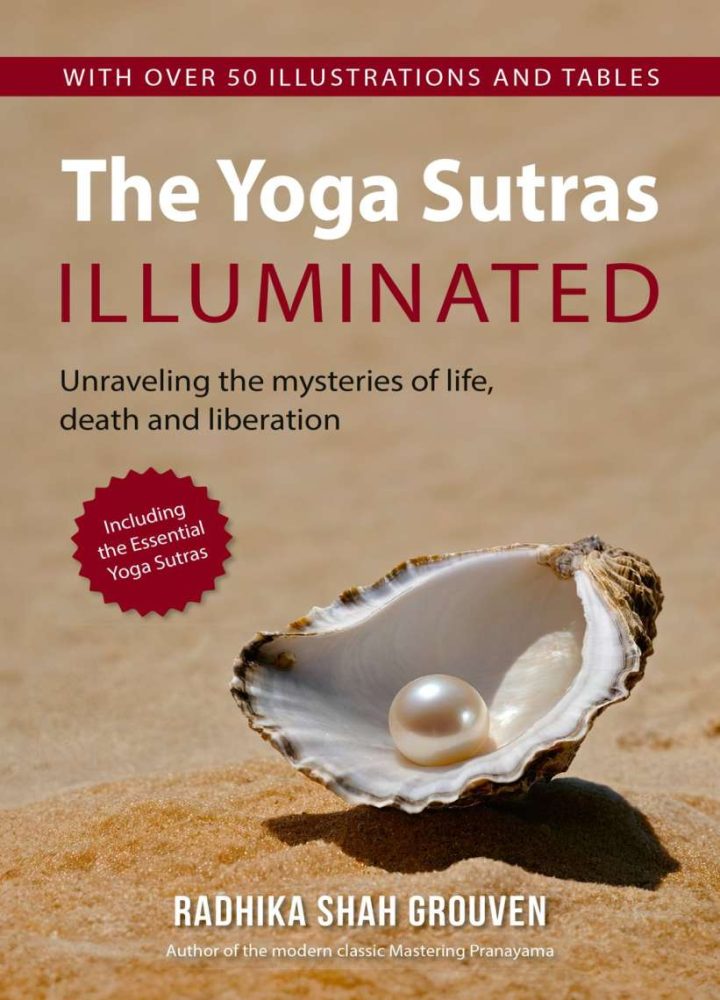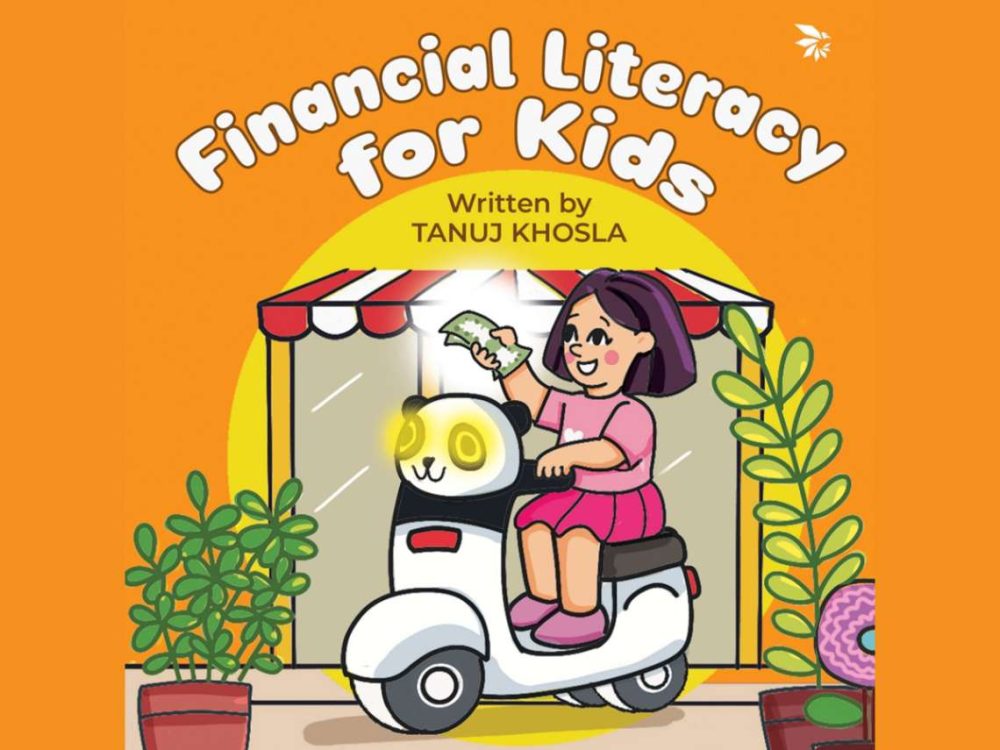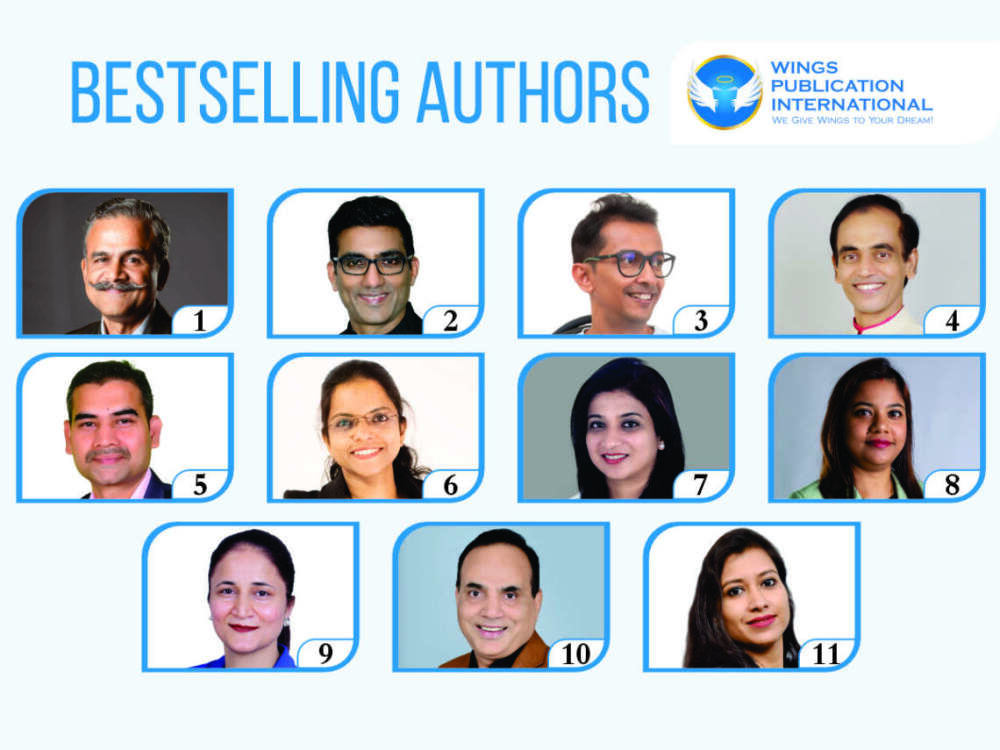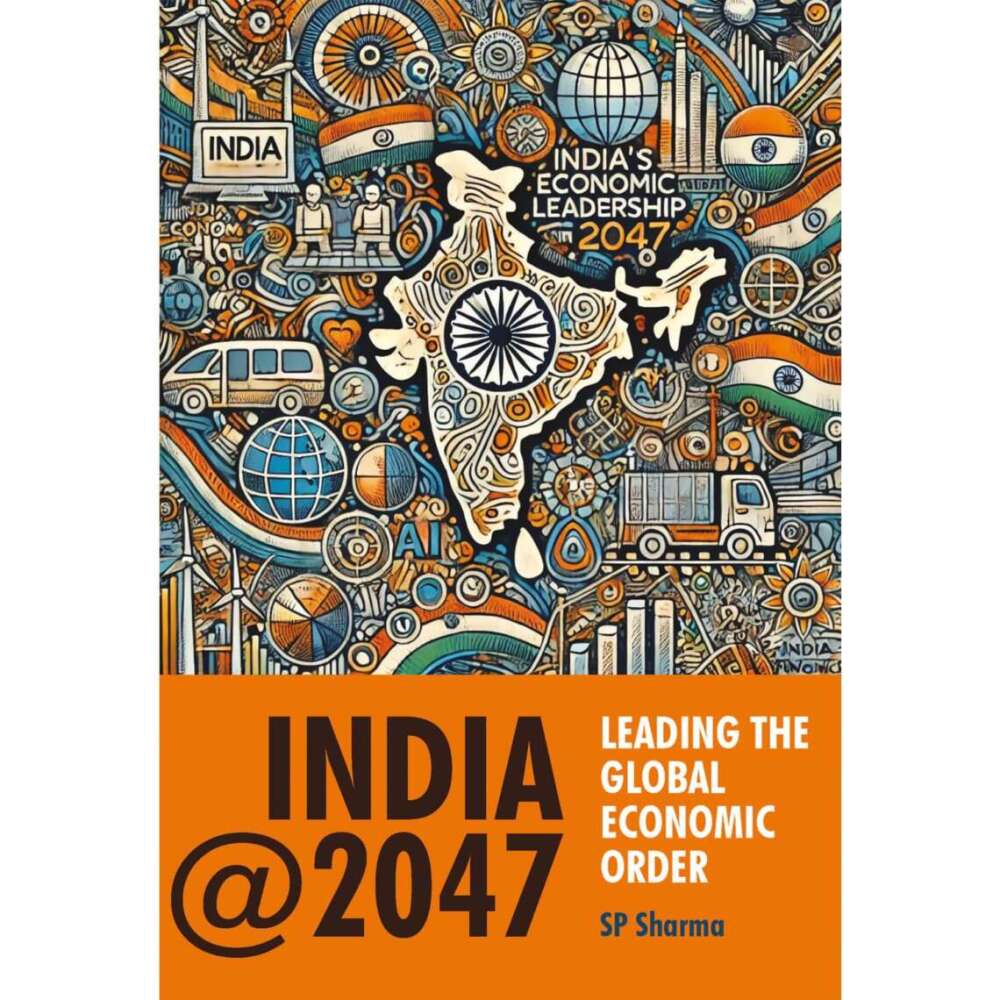A non-fiction, ‘Gilded Cage’ that speaks of exhaustive research reads like a thriller, something which makes it accessible even to non-history buffs. Bamzai, a student of economics who did not study history formally calls himself an ‘amateur historian’ who has developed a fascination for modern history…writes Sukant Deepak
A pause. And he says when it comes to writing on Kashmir, there is an emotional quotient involved. That is not just due to the fact that he was born there but also that the Pandit community, which has contributed immensely in diverse spheres, was forced to leave the Valley and become a migrant in its own country.
Author Sandeep Bamzai’s latest book, ‘Gilded Cage: Years that Made and Unmade Kashmir’ (Rupa) chronicles the time from the emergence of Sheikh Abdullah in Kashmir’s politics up to his arrest to the disillusionment of the Kashmiri masses from their leadership. From Jinnah’s obsession with Kashmir to Sheikh Abdullah’s hatred for Jinnah, from Jawaharlal Nehru’s comprehension of the Valley being a shop window for his brand of secular politics to Maharaja Hari Singh’s streak of remaining independent in the face of both India and Pakistan, this book covers the vital years that defined Kashmir’s accession to India.
The author, whose latest is the third part of the trilogy after ‘Bonfire of Kashmiriyat’ and ‘PRINCESTAN: How Nehru, Patel and Mountbatten Made India’, tells IANS that he feels a certain compulsion to write the Valley’s real story as superficiality seems to have become the norm and many people are just not interested in delving deep into history.
“Frankly, as a nation, we have not documented our own independence and freedom struggle adequately, precisely why I have been stressing the need for a Freedom Archives for long. There are many unsung heroes of the freedom struggle and those who ascertained integration of different states and Kashmir’s accession to India, including V.P. Menon, K.N. Bamzai, and Dwarka Nath Kachru. It is important that the real story is uncovered, something that pushes me to write.”
A non-fiction, ‘Gilded Cage’ that speaks of exhaustive research reads like a thriller, something which makes it accessible even to non-history buffs. Bamzai, a student of economics who did not study history formally calls himself an ‘amateur historian’ who has developed a fascination for modern history.
“I guess curiosity as a journalist is probably acting as a catalyst, but I have immersed myself and done a deep dive into history. When it comes to research, even if you have papers, documents, letters, and multiple memoirs or whatever written by several of the people who have been mentioned in this book — to connect the dots and create a narrative out of that is an extremely difficult process,” adds the Editor-in-Chief, MD, and CEO of Indo-Asian News Service (IANS).
While writing ‘Gilded Cage’, the author looks at the key dramatis personae of the time who were involved in Kashmir between 1931 and 1953 and splits them into two parts — protagonists and antagonists. In the narrative, there are some dark figures and nationalist personalities. “I have tried to build a narrative in the push and pull of the protagonists and antagonists. The other thing, much different from my other two books in the trilogy is the conscious tighter narrative and fiction-like flow. I have written a story building on the tent poles with the papers and the documents that were given to me.”
Talk to him about the contemporary situation in Kashmir, and Bamzai says the revocation of Articles 370 and 35A has been a seminal measure ascertaining integration and mobility. “And it was done so effectively that one must give complete credit to the Prime Minister and the Home Minister for that.”
He, however, feels that unless peace is restored in the Valley, it would be unfair to expect Pandits to return to their homeland. “You cannot build a ghetto for them on the left or right side of the Jhelum. The community would never back that. It has been 30 years and people have moved on, built their lives again from scratch… The Pandits being targetted in lone wolf attacks in the Valley are soft targets, who being economically backward could not move out of there. The message coming out of Kashmir is: ‘You can come here as a tourist, but not live and work there if you are a non-Muslim. We will kill you. And that is exactly what is happening,” says this Kalinga Book award (Princestan’) winner.
The author, who has worked in major media houses in senior positions for more than 40 years now admits that both Indian and international media have failed to acknowledge the true forced migration of Pandits from the Valley. Stressing that nobody really cares, he says while many people are making a huge hue and cry about the film ‘The Kashmir Files, it is the only time that the truth has been revealed. “Even today, as we speak, there are camps outside Jammu where economically backward Kashmiri Pandits continue to live in hell. Honestly, everybody seems to have just washed their hands off this community, maybe that is the reason I keep revisiting this theme.”
In favour of early elections in the Valley, he feels that the same can be expected in 2023, soon after the snow melts, maybe as early as May or probably with the ones in Karnataka. Adding that various parties are already preparing for them, he adds, “There is Farooq Abdullah on one side, one cannot say if the Congress will be with NC or not. There is BJP on the other side and Ghulam Nabi Azad is the X factor. An elected government in Kashmir is extremely important. And I must add that Manoj Sinha, the Lt. Governor there has spearheaded serious developmental work, recognized even by the locals. The kind of investments coming to the Valley will result in major employment, something that will be instrumental in weaning the young away from the gun.”
Ask him if he plans to write fiction with the Valley’s backdrop and he says that though he was born there, he has lived his entire life outside. Bamzai is, however, contemplating writing the next part of the book which will focus on the years between 1953 to 1965. “I may also write another one 1965 from 1971 when the Indira- Sheikh accord was signed,” says the author whose immediate next project is a pictorial history of Kashmir commissioned by Roli Books.
Talking about his process, which starts with extensive research, he says what is crucial is connecting the dots from diverse research sources, including important papers handed over to him by his family. “Post the research, and while the writing is being done, the chapters need to be set right and so do the characters they hold. The narrative must hold the reader with a strong grip. All this is interconnected and nothing works in isolation,” says Bamzai, insisting he is still a journalist first, and will always remain a news junkie.
ALSO READ-Kashmir to host G20 tourism meet


